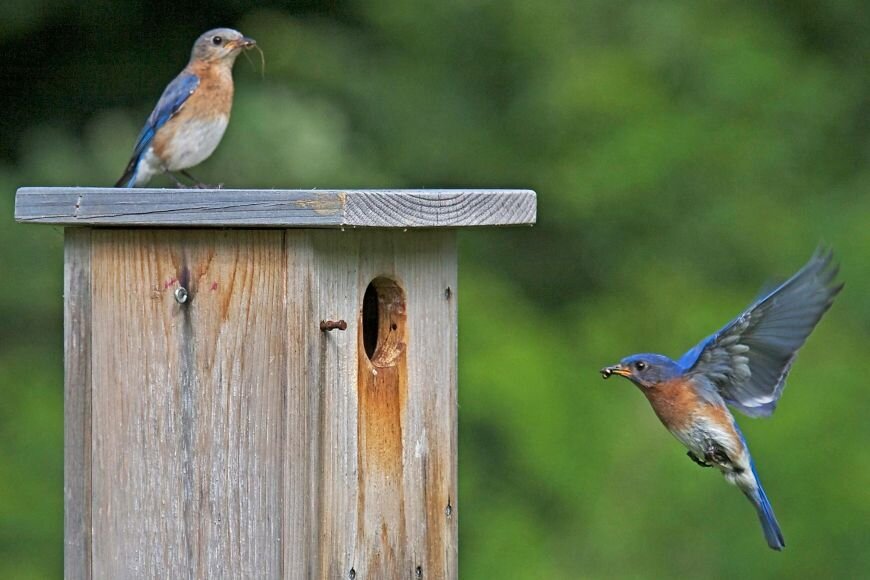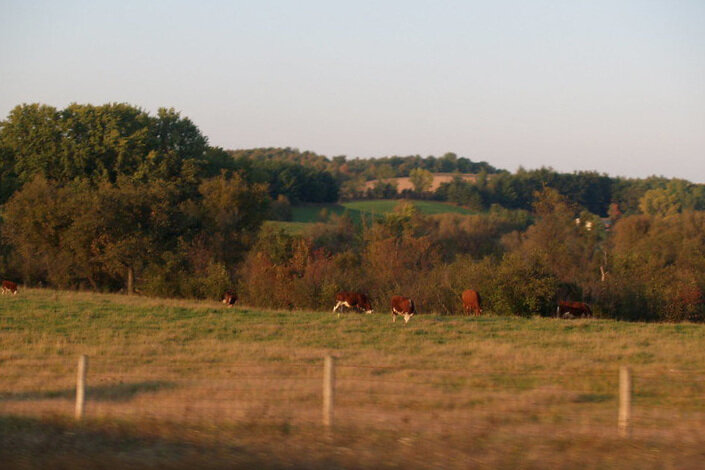The Natural Heritage Conservation wing of the DNR just published a report on the state of Wisconsin birds with a combination of bad news, good news, and ideas for creating more good news for birds and those of us who cherish them. Check out the full report by clicking the button below.
Bluebirds bring a snack back to the nest. Photo by Patrick Ready
As a reward for reading all of this great stuff, the last story is a great account of successful efforts to help Wisconsin's kestrels, co-authored by none other than Brenna Marsicek, Madison Audubon’s Director of Communications & Outreach. If anyone enjoys this blog, please join me in thanking Brenna for being its editor in addition to all her other duties. She corrects mistakes, finds links, adds photos and scientific information, and is a lot of fun to work with.
The bad news is unfortunately easy to summarize: Most Wisconsin bird species are in steep declines, and have been for several decades. In most cases, the reason is loss of habitat.
The good news is we can help birds on backyard, local, state, national, and international levels. Birds need bugs to eat and bugs need native plants to thrive.
Gardens provide habitat and food (and delight!) to many. Photo by Patrick Walsh
How you can help: Give them food (and not necessarily from feeders)
Plant more and as wide a variety as possible of native plants in your yard. Bird feeders are great and a joy to watch but as birds raise their young they need bugs. Bunches of natives plants—flowers, grasses, shrubs, and trees will provide what the parents and little ones need. Madison Audubon, National Audubon, and your local Extension Office can help you find the info you need to undertake such plantings and several nurseries specialize in native plants (fall is a good time for planting many of these natives).
A hardy group of Madison Audubon volunteers band together to restore a prairie at Goose Pond Sanctuary in 2018. Madison Audubon photo
How you can help: Support conservation organizations
Donating money will help a variety of local and state conservation organizations buy and restore native habitat. I think bolstering these efforts might be the most effective way to help the greatest range of species in decline in our area.
Madison Audubon is currently raising funds to support our acquisition of critical habitat at Ostego Marsh.
The Green-Rock Audubon Society, our sister chapter to the south, is doing a great job of creating habitat in SW Rock County.
The Prairie Enthusiasts' Empire Sauk Chapter is undertaking some absolutely incredible purchases for grassland birds in our area.
Groundswell Conservancy has protected and restored thousands of acres in and around Dane County.
Pheasants Forever has a similar record with regard to the protection and restoration of prairies across the upper Midwest.
Wisconsin is covered with land trusts, just about all of which are intensifying their efforts to protect more land and restore more habitat. I was privileged to visit one of the Mississippi Valley Conservancy's properties and was impressed by its beauty and an endangered species I stumbled across (no harm to me or the species). Please think of helping any of these or other Wisconsin land trusts or conservation organizations.
At the national and international level, the Natural Resources Foundation of Wisconsin and its Great Wisconsin Birdathon support some of the habitat our migratory birds need in other parts of the country or in other lands.
How you can help: Spend your food dollars wisely
Back to the Natural Resources Magazine, and another idea. One of the best articles describes actions that different individuals and clubs are taking to help birds. The Marr family caught my eye. They have sold pasture raised beef at the Farmer's Market for years and this article documents their extraordinary conservation ethic over many generations. One of many happy results is the outstanding habitat the Marrs provide for grassland birds.
Cows graze in the setting sun over Wisconsin’s hills. Photo by Tim Ellis
That got me thinking of the several farmers and others in the food world who make healthy food available to us while maintaining good habitat for birds and many other creatures. If you're buying meat, cheeses, eggs, or other dairy products think of patronizing the Marrs (downtown Farmers' Market), Landmark Creamery in Paoli, Highland Springs beef and pork (westside Farmers' Market), Brix Cider, with particular reference to April Prussia's soaps and the most incredible bratwurst you'll ever eat—Brix is in Mt. Horeb, and Pecatonica Valley Farms (available through Jorandahl's in Verona). Obviously there are lots of other farmers and CSA's in this area offering sustainably, responsibly raised food that usually includes good bird habitat in their operations. Buy local, get to know your farmers and other providers, and support the folks who support the wildlife you love. And the food is delicious and healthy.
Written by Topf Wells, Madison Audubon board of directors and advocacy committee chair







